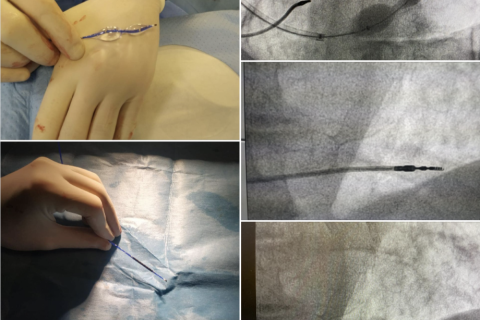The procedure took place on November 21 this year in the Invasive Cardiology Laboratory of the 1st Chair and Department of Cardiology MUW, headed by Prof. Marcin Grabowski. The patient with angina persisting despite optimal pharmacotherapy and multiple interventions on the coronary arteries was implanted with a coronary sinus reducer. The operation was performed by a team consisting of Prof. Janusz Kochman, Mariusz Tomaniak, MD, PhD, Dr. Felix Woitek (proctor), as well as Iwona Wyszomirska, MA, and technician Sławomir Dziewulski performed at the Invasive Cardiology Laboratory of the 1st Chair and Department of Cardiology MUW, headed by Prof. Marcin Grabowski.
A flow reducer is an implant that, by narrowing the main flow of veins draining blood from the heart (known as the coronary sinus), leads to a gradual congestion of the previously anemic areas of the heart muscle.
The procedure offers an opportunity to improve the quality of life in patients with persistent chest discomfort in whom previous treatments have failed to reduce symptoms, as well as among patients diagnosed with coronary microvascular dysfunction.
The coronary artery reducer implantation program launched at the First Chair and Department of Cardiology MUW expands the available methods of treating coronary syndromes, taking into account a particularly difficult group of patients with therapy-resistant angina in clinical practice.
On the same day, the first implantation of such a device was performed at the National Institute of Cardiology in Anin.
Photo: archives of the 1st Chair and Department of Cardiology
